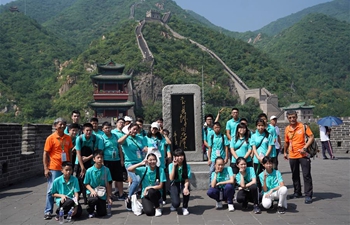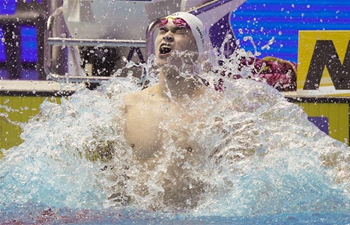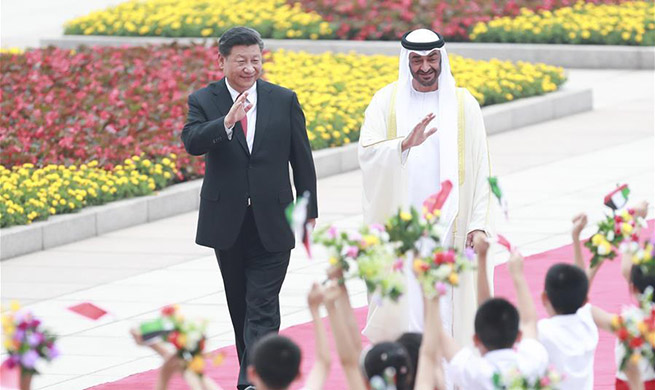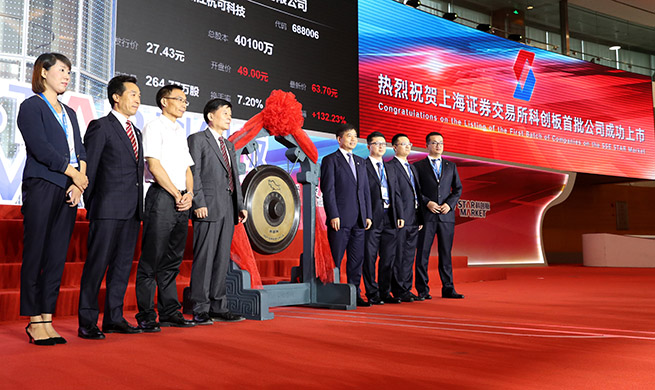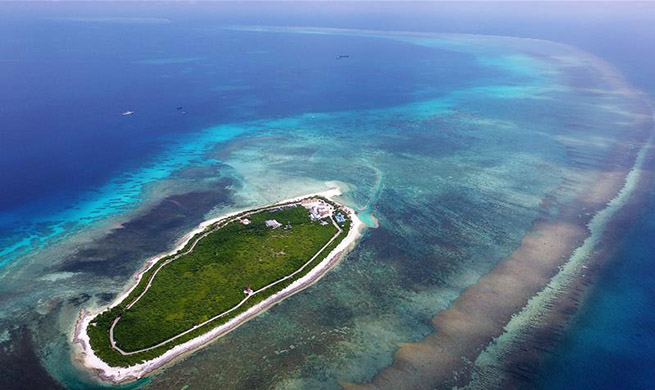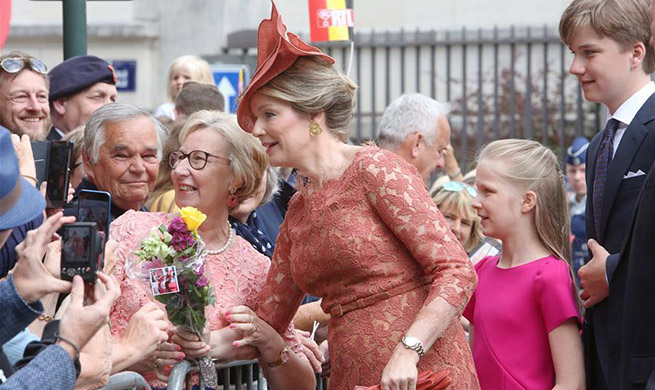GENEVA, July 22 (Xinhua) -- China's economy has "strategic direction" of innovation coming from the top that makes the World Intellectual Property Organization (WIPO) chief "very optimistic" for its performance in the 2019 Global Innovation Index (GII).
WIPO Director General Francis Gurry was interviewed at his office over the weekend in Geneva by journalists from Chinese media before he will leave for the July 24 launch of the 2019 GII in New Delhi, India.
"My expectation for China in 2019 in the Global Innovation Index is very optimistic," said Gurry.
"We know that there is strategic direction of innovation in the economy that is set from the highest level in China," said the WIPO chief. This was a momentum that has "been gathering over the years."
"I'm sure there's a lot more growth still for innovation in China, but all of the indicators suggest that China will continue its upward movement in a very positive manner."
Gurry noted that in 40 years, China has constructed "a first-class intellectual property (IP) system and infrastructure with repeated messaging from the leadership of the importance of intellectual property."
"And I think there are repeated improvements, in the intellectual property system and infrastructure in China," said the director general.
The GII shows the countries topping the world-renowned annual ranking of economies' innovation capacity and production.
The WIPO chief acknowledged that China currently lags behind some of its competitors in patent filings, but he said it is necessary to look at the movement and direction of statistics.
"We see in the direction of the movement of the statistics, that China is increasingly filing international applications, or if you like internationalizing its domestic innovations. And, that is a very positive trend," said Gurry.
He explained that for example, there were 1.38 million patent applications filed in China in 2017, compared with 10,000 patent applications in 1990, which was "extraordinary progress."
"Now, the number of international patent applications that comes out of the domestic filings has been steadily increasing. Of course, there is still room for greater increase, and we will see that. I'm sure that the direction is very positive."
On China's role in global governance on the 70th anniversary of the founding of new China and its role around IP after its reform and opening up 40 years ago, Gurry said, "China has a great interest in the global governance system for intellectual property and ensuring the proper global governance system for intellectual property, as a major producer now of intellectual property and intellectual assets."
He said that all innovation powers, including China, take intellectual property seriously.
"And I think there are repeated messages, from the Chinese leadership of the importance of intellectual property...and there are repeated improvements, in the intellectual property system and infrastructure in China," said Gurry.
The Belt and Road initiative offers a great opportunity as WIPO has systems that make it easier to get patent protection, trademark protection, design protection for internationalizing protection of copyright through cohesion, which he said is "good for intellectual assets."
The WIPO chief also acknowledged the multilateral system is "under enormous strain."
"If you like, you can summarize by saying that there are, there are many signs of closure in this world. After a period of great openness and opening in the 1990s, the 2000s, we see many signs of closure, whether it's relating to investment or trading or protectionism, the attitudes adopted to economies."
Fortunately, he said, there are sound systems in the IP field built up over decades, these, for example, allow Chinese enterprises or an enterprise from any country, to use the system to penetrate others in the Belt and Road Initiative.






